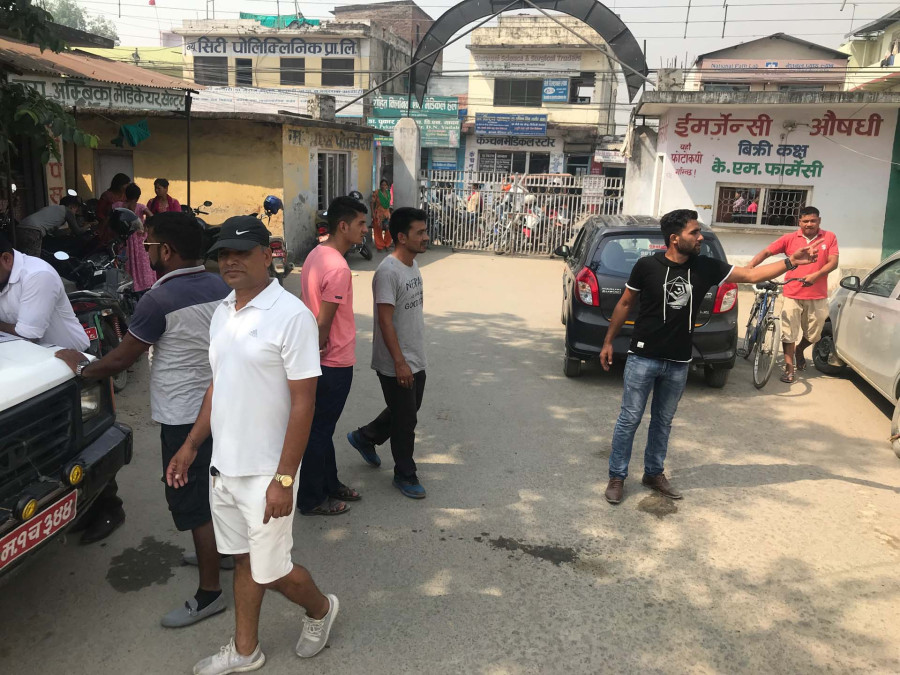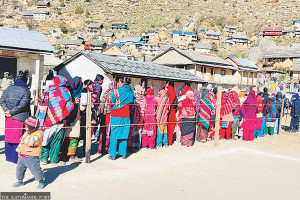National
Healthcare in disarray in Sudurpaschim Province
Absence of implementing is guidelines weighing the health sector down.
Arjun Shah
Neema Chaudhary of Tikapur in Kailali recently found out that she had two blood-related diseases—Sickle Cell and Thalassemia. She visited the ward office this week to seek a reference letter for the monetary help provided by the Social Development Ministry to the underprivileged. But the ward office refused to write one. Chaudhary then visited the municipal office, which also declined to write a reference letter to the ministry. The office instead wrote a reference letter to the Seti Zonal Hospital. But it is unlikely that the hospital will provide compensation to Chaudhary based on the municipality’s recommendation. Chaudhary is still seeking ways to receive financial help from the government for her illness.
The Social Development Ministry has a provision to provide Rs 100,000 to patients with critical illnesses, including Sickle Cell. To get the incentive, patients need to reach out to a local unit for a reference to be sent to the Ministry, which then releases the amount.
However, Lok Bahadur Thapa, an official at the ward, said, “We are not aware of the Ministry’s directive so we couldn’t write a reference letter.”
Ramesh Kunwar, a public health officer at the Social Development Ministry, said not all officials at the local units are aware of their area of jurisdiction. “The ministry has handed over all duties related to public health care to local units under the Local Government Operation Act 2074,” said Kunwar. “That is why many local units shy away from implementing policies formulated by the ministry.”
Kunwar further said the recent epidemic of diseases like Dengue and Scrub Typhus went unchecked because the local units were slow to respond.
Because of the confusion among the officials of local units, the condition of healthcare in Sudurpaschim province is in disarray, said Dr Gunaraj Awasthi, a provincial health director. Five out of ten best-performing districts in terms of healthcare used to be in the Far-west, but today, the quality of healthcare in the province is on the decline, said Awasthi.
“This manifests in a poor index in terms of diseases such as tuberculosis, leprosy, HIV, and other facets of healthcare such as family planning and maternal health,” Awasthi said.
While local units have now become more financially secure, they haven’t been able to use their budget to the desired effect, said Mahesh Joshi, a health advisor with GIZ, a donor agency. “What’s lacking is the monitoring and evaluation of the healthcare sector, and effective health campaigns,” Joshi said.
In the current fiscal year, Sudurpaschim Province has allocated a total of Rs13.65 billion under the development budget head. Out of the budget, Rs1.2 billion is allocated to health care.




 7.12°C Kathmandu
7.12°C Kathmandu














